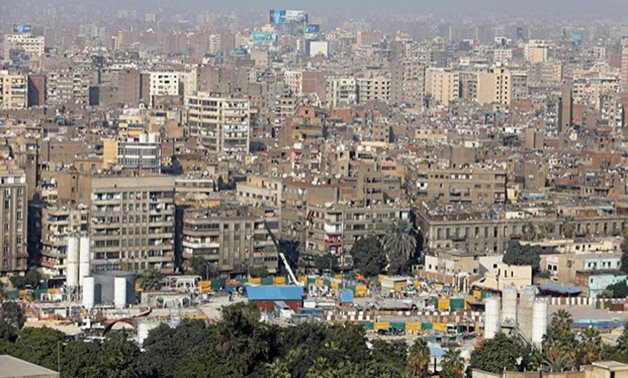
A general view of clustered buildings in Cairo, Egypt, January 28, 2018. REUTERS/Mohamed Abd El Ghany
CAIRO - 4 October 2022: Egypt’s Purchasing Managers' Index (PMI), issued by the S&P Global Group, stabilized during September at 47.6 points, the same reading recorded in August 2022.
The index signaled a solid deterioration in business conditions, albeit one that was the joint-weakest for seven months, it revealed.
According to the data, the Egyptian non-oil businesses registered a marked decline in output during September with contractions now seen each of the last 13 months. Firms indicated that energy rationing, part shortages and weak demand weighed on output.
Furthermore, new orders fell solidly during September, but at the weakest rate for seven months.
“Firms indicated that high prices and client hesitancy curtailed demand. Meanwhile, exports fell for the second month in a row, but at the steepest rate for over two years. Weak demand reportedly drove the latest decline,” it added.
Economist at S&P Global Market Intelligence, Shreeya Patel, stated that the non-oil activity in Egypt continued to suffer from weak demand, geopolitical tensions and surging inflation in the final month of the third quarter.
“The energy crisis - brought about by Russia's war on Ukraine - led to sharp uplifts in energy costs and the introduction of energy rationing policies. At the same time, unfavorable pound dollar exchange rate movements added to already steep price pressures,” Patel added.
As a result, clients held off from placing orders while those in international markets reduced their demand sharply with exports falling at the quickest rate for over two years, According to Patel.
She added that firms nevertheless remain hopeful that macroeconomic conditions would improve in the medium-term, but for now, non-oil Egyptian businesses are challenged to operate in an environment which includes persistently high prices, weak demand and growing uncertainty.

Comments
Leave a Comment